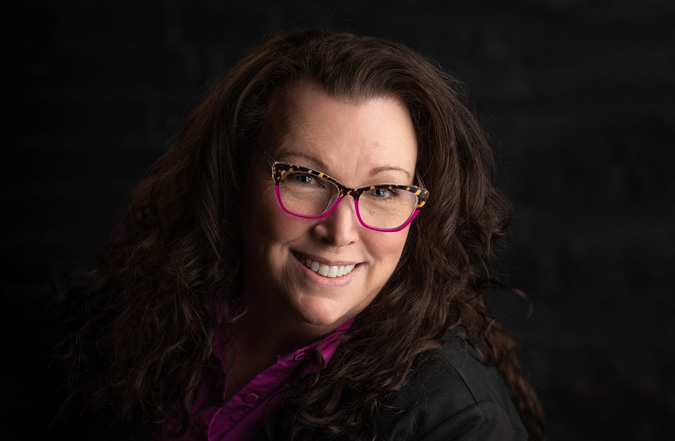
It’s a Monday evening, and the new AdoptUSKids national project director has just learned a new word: donadagohvi. It means “until we, you and I, meet again” in the Cherokee language. After her language revitalization class, she steps out onto her farm with her labradoodle, Delilah, and heads out to feed her chickens and spend some time in nature.
Melinda Kline brings vast knowledge as a child welfare professional spanning over 30 years of experience. In addition, family is everything to Melinda, and her culture as a registered tribal member of the Cherokee Nation of Oklahoma informs her passion for the field.
Get to know the new national project director in this interview.
What is your experience in child welfare?
I have a master’s in social work and am a licensed clinical social worker. My most recent role was as deputy director for permanency programs in Kansas, where I collaborated with many people to make sure that children are cared for. The role required a lot of relationships, trust, and collaboration, which will all be important in this new role at AdoptUSKids.
In addition, I have experience as the president of the National Association of State Adoption Programs (NASAP) Board. I also served as a field ambassador for the Center for Capacity Building for States.
Interestingly, I’ve actually operated an AdoptUSKids localization grant in one of my previous roles. The Kansas Children’s Service League was awarded the grant.
You also have a personal connection to adoption.
I do. I think if you talk to people enough, almost everybody has some connection to foster care or adoption. My mom actually took a secret to her grave: she chose to have two of her children adopted. It was a blessing to me that I got to find them as adults. I know first-hand the importance of family connections.
I also raised a nephew. Because of that experience, and being a tribal member, I know that we tend to be a community that—outside of the system—will raise each other’s children. I am also aware of how complicated family relationships can be.
Coming from that experience, what makes you excited about AdoptUSKids?
Within my career, I would like to do something about the disproportionality and disparities of Black and Brown children and families that get separated. Children of color linger longer in the child welfare system and are not privy to the same treatment sometimes.
As a social worker and someone who has worked in many child welfare systems, I’ve always tried to ask questions and be open to learning more. It’s important to be a listener within the Black and Brown community. I feel that AdoptUSKids is a good place to continue effecting change and elevating the voices of those with lived experience of the system.
Another piece of this is that I like to use data to call practices into question. For example, when I started at Adopt Kansas Kids, I was able to uncover important trends when looking at the percentage of Black foster and adoptive parents in the state. Data allows us to evaluate whether we are asking the right questions, and I look forward to continuing that work.
Any final thoughts?
I’ve always looked to AdoptUSKids for excellence in adoption. AdoptUSKids does the research, they quote the experts, and they have their finger on the pulse of cutting-edge work. In my view, they really lead the field.
And in the Cherokee language, we have a word, Gadugi ᎦᏚᎩ, which describes working together as a community toward a common goal. I believe we have an opportunity for Gadugi at AdoptUSKids, and I am excited beyond belief to join this community.
Get in touch with Melinda Kline at mkline@adoptuskids.org.